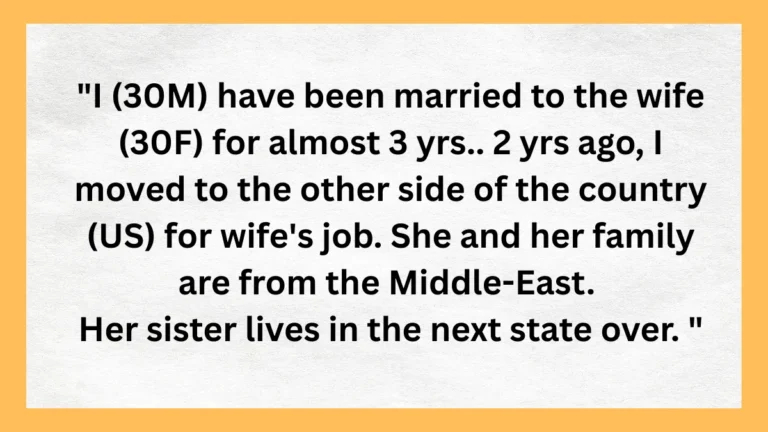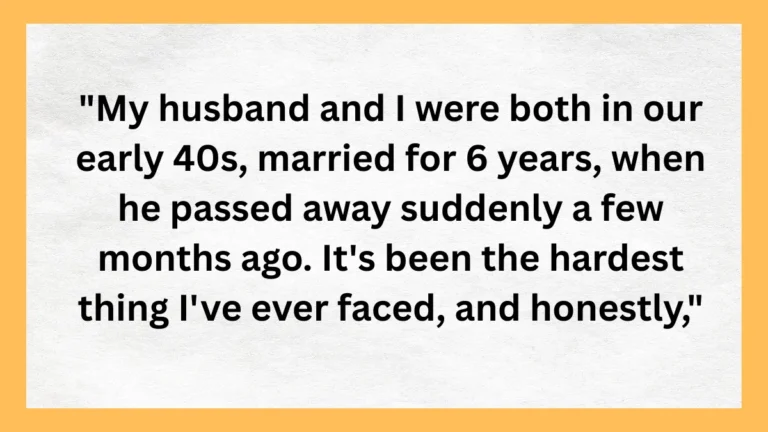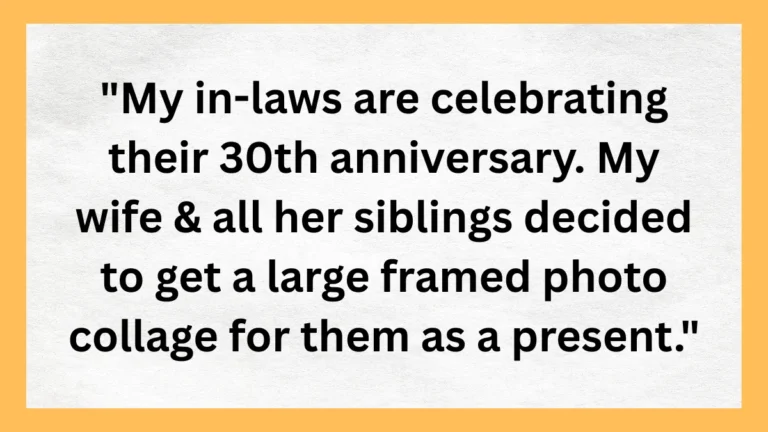He Couldn’t Afford Her Gift—Now She’s Calling Him Ungrateful
Imagine this: A wife surprises her husband with a brand-new inflatable hot tub for his birthday. Sweet, right? Not quite. The couple is barely making ends meet—he’s unemployed, she’s on maternity leave, and their budget is stretched razor-thin. The expensive gift, while wrapped in good intentions, immediately feels like a financial misstep.
To make matters worse, it turns out the hot tub isn’t returnable, and its maintenance could add another chore to the already overwhelming list of household responsibilities. The husband can’t help but feel the gift was more for her than for him.
While he recognizes the sentiment behind the surprise, resentment quietly brews. Should he confront her and suggest selling it to redirect the money toward something he genuinely needs? Or should he bite his tongue, smile, and spin it into a bonding opportunity—“At least now we can relax together”?
It’s a tough call between honesty and harmony. What would you do in his shoes?

His wife surprised him with an expensive inflatable hot tub for his birthday—but he doesn’t want it, and he can’t shake the feeling that she’s hiding the real reason she bought it. To him, it seems less like a gift and more like something she wanted for herself, wrapped in the illusion of generosity.

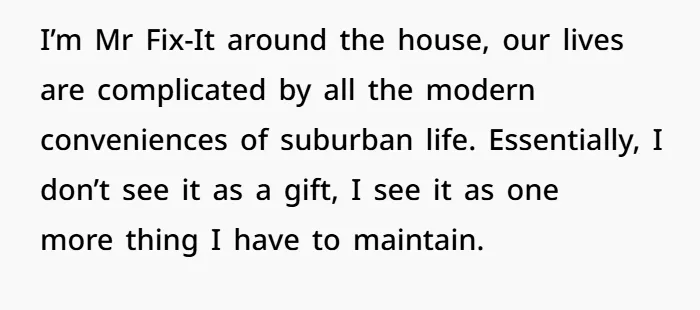
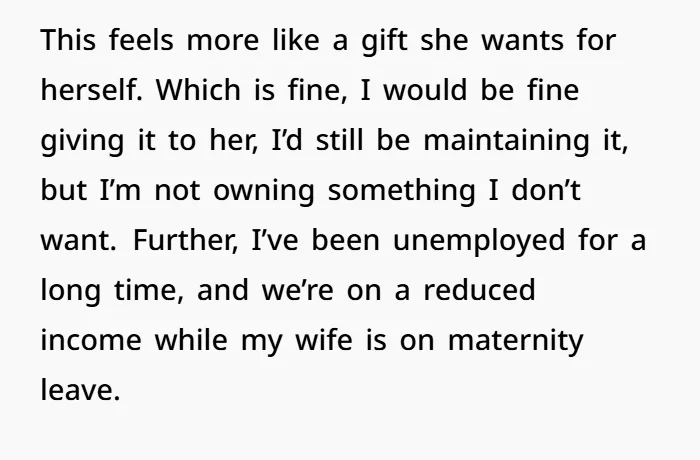
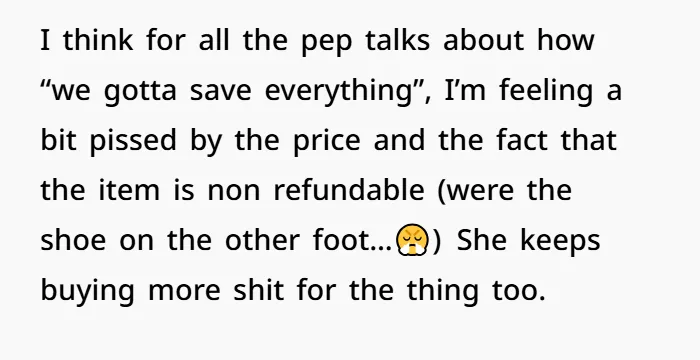

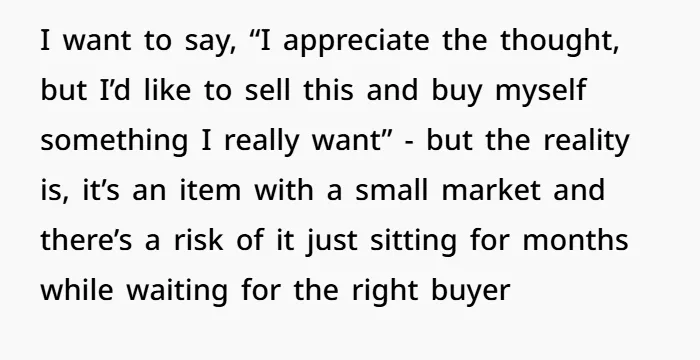


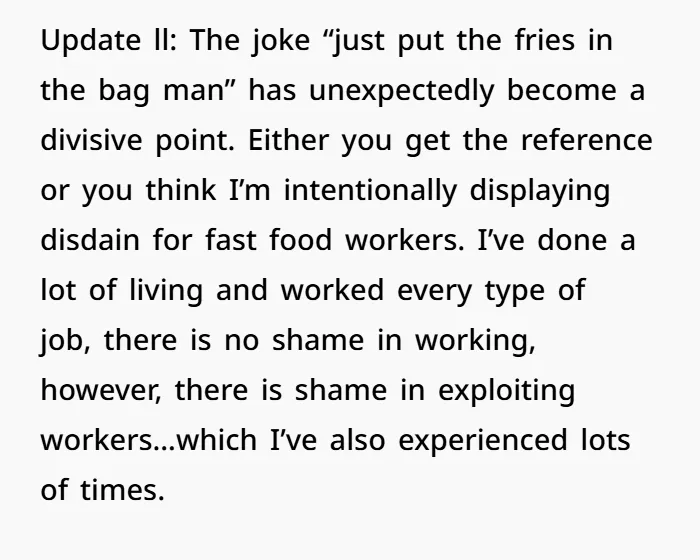
Coping with Financial Strain and Communication Gaps in Marriage
The Price of Thoughtless Gifting
Financial pressure often magnifies tensions in a relationship—especially when one partner makes a costly purchase that feels unnecessary. According to the American Psychological Association, money remains one of the leading sources of marital stress. In this case, the wife’s decision to buy an expensive gift clashes with their mutual goal of saving. To the husband, it doesn’t feel thoughtful—it feels dismissive. Not only does it strain their budget, but it also leaves him feeling like a burden, now responsible for the upkeep of something he never wanted.

The gift—whether it’s a quirky video card featuring a cat in a sweater, a novelty hat, or even a folded seed origami—points to a deeper issue: a disconnect in understanding what truly makes a gift meaningful. Gifts are more than objects; they’re emotional gestures. But when they miss the mark, especially in a home already burdened by financial stress, they can feel less like acts of love and more like empty formalities—mechanical, impersonal, and ultimately disappointing.

